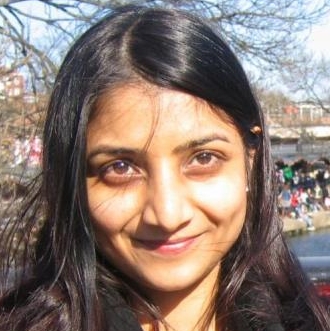Lakshmi Arya, PhD

Role: Fulbright- Nehru Post-doctoral Research Fellow, Jawaharlal Nehru University
New Delhi, India
Contact: lakshmi.arya@gmail.com
Research Interests:
History
|
Philosophy
|
Post-Colonial Theory
|
Feminist Legal Theory
Lakshmi Arya visited Emory Law on a Fulbright-Nehru postdoctoral research fellowship. Lakshmi is a historian by training. She earned a Ph.D. in Modern Indian History from Jawaharlal Nehru University, India.
In India, she has been a Fellow at the Indian Institute of Advanced Study, Shimla; Assistant Professor and Assistant Director, Centre for Women, Law and Social Change, at the Jindal Global Law School, O.P. Jindal Global University, Sonipat; and Associate Fellow at the Centre for the Study of Culture and Society, Bangalore. Lakshmi's current research traverses history, philosophy and the law.
She is working on a book project, which investigates the concepts of cultural difference and experience. She understands cultural difference partly as an epistemic difference: A difference in the questions that intellectual traditions problematize (i.e. what becomes a question for an intellectual tradition to ponder, debate and resolve). She posits that while the answers given may be diverse and contradictory, what unites an intellectual tradition is not so much the many answers that it gives, but the questions that it asks. These questions (and answers) produce a conceptual scheme through which experience is understood; say the experience of the self, or the experience of work, or sexual experience. In the West, the questions come from Christian theology, overtly religious until the Middle Ages, and secularized in the modern period. An implication of this research is that it challenges existing binaries such as feminism and cultural relativism by positing that Western feminism, being part of the Western intellectual tradition, is deeply cultural: It explains women's experience through a theological lexicon / conceptual scheme. Concepts such as agency, freedom, true and false consciousness, which are fundamental to Western feminist thinking, are, in her postulation, theological concepts. The book proceeds to ask the question: What is culture, and has postcolonial theory given us any insight into this concept? It further raises the question: What is experience?
Lakshmi has been awarded various fellowships: She was the Charles Wallace Indian Fellow at the School of Oriental and African Studies (SOAS), London (2009-10), the Gender, Sexuality and Law Visiting Fellow at Keele University, UK (2005) and the Junior Research Fellow of the Indian Council of Historical Research (ICHR) as a doctoral student.
